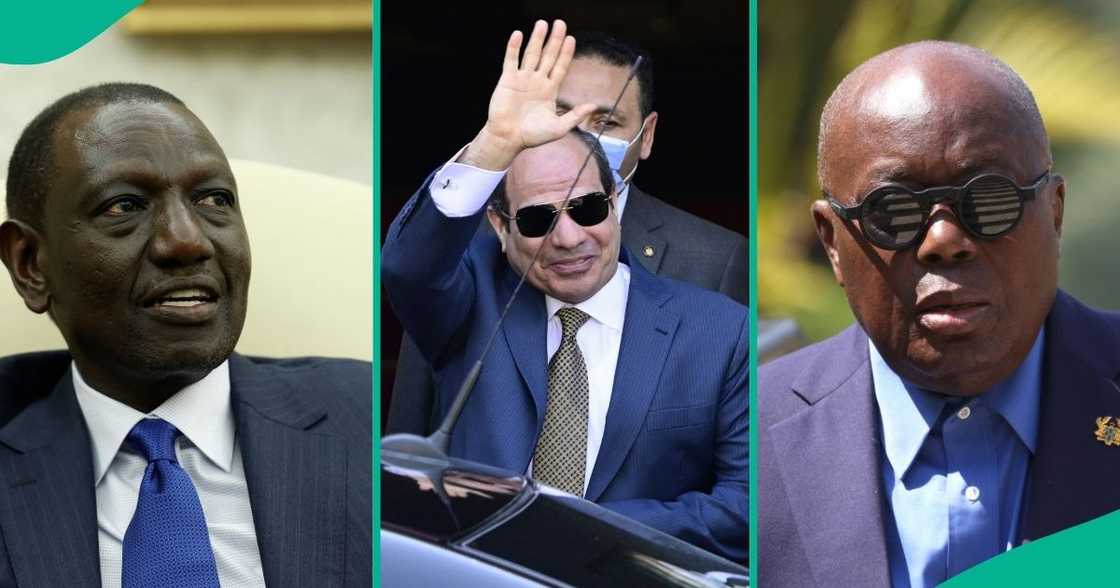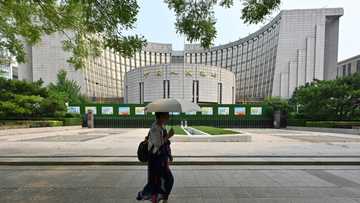“Full List”: IMF Names 10 African Countries Facing Biggest Debts
- According to an updated IMF report, about 10 African countries have been identified as struggling with massive debt
- These African countries face significant balance of payment hurdles, struggling for imports to meet international financial obligations
- The report said that Egypt ranks first in the list of African countries with massive debt to the IMF
Legit.ng’s Pascal Oparada has reported on tech, energy, stocks, investment, and the economy for over a decade.
African countries, including Nigeria, struggle with massive International Monetary Fund (IMF) debt burdens, showing a high total IMF credit outstanding.
The IMF extends credit to countries facing economic challenges while promoting global monetary cooperation.

Source: Instagram
What IMF debt means for African countries
The support causes economic reforms and policy changes such as fiscal restraint and improved governance.
These African countries face significant balance of payment hurdles, struggling for imports to meet international financial obligations.
While IMF loans help to stabilize economies, boost currencies, and restore confidence, they also cause a substantial debt burden, which poses a future fiscal challenge.
IMF debt comes with massive conditions
If not properly managed, IMF loans can destroy an economy. Debts generally cause financial stress, and loans often come with strict conditions, such as austerity measures, reduced public spending, subsidy cuts, and tax raises.
These conditions aim to correct fiscal imbalances but could lead to social unrest and impact weak populations negatively.
Also, the conditions can weaken local currencies through devaluations.
According to an updated IMF list, about 10 African countries had the highest outstanding IMF credit as of July 19, 2024.
Recently, the IMF also released the list of African countries with the least debt.
Egypt: $10,215,014,179

Read also
Nigeria adjusts petrol prices as list shows top 10 African countries with highest fuel costs
The North African country is the first on the list, with an outstanding debt surpassing $10.2 billion.
Egypt has faced many challenges, including political instability, high unemployment, and inflation.
Angola: $2,989,900,003
Angola has almost $3 billion in IMF debt and has struggled with economic diversification, relying primarily on oil exports for revenue.
The volatility of oil prices has strongly impacted the country’s economy.
Kenya: $2,566,263,300
East Africa’s largest economy has over $2.5 billion in IMF loans, which shows the country’s efforts to address economic challenges such as high public debt, fiscal deficits, and the need for infrastructure development.
Ghana: $2,303,438,500
Ghana owes the IMF about $2.3 billion. The West African country has been lauded for its stable democracy. However, economic challenges continue, including public debt and fiscal deficits.
Cote d’Ivoire: 2,246,318,672
The country has just a little over $2.2 billion in IMF debts but has experienced robust economic growth.
However, it faces challenges such as political instability and regional security issues.
South Africa: $1,907,000,000
Africa’s most industrialized country owes the IMF about $1.9 billion.
South Africa faces prolonged economic challenges, including slow growth, high unemployment, and fiscal deficits.
Congo, Democratic Republic of $1,599,000,000
The East African country owes about $1.5 billion to the IMF.
The DRC is rich in natural resources but faces significant economic and political challenges, including conflict and governance issues.
Nigeria: $1,227,250,000
Nigeria has approximately $1.23 billion in IMF debts. It is Africa’s largest economy and has vast oil resources, but it grapples with economic diversification, infrastructure deficits, and fiscal issues.
Senegal: $1,143,348,750
Senegal is indebted to the IMF for $1.4 billion and has been recognized for its political stability and economic growth.
However, Senegal faces challenges such as high public debt and infrastructure deficit.
Morocco: $1,056,550,000
The Maghreb state owes the IMF about $1 billion. The country has maintained relative economic stability but faces challenges such as youth unemployment and regional disparities.
Nigeria successfully repays Chinese, World Bank loans
Legit.ng earlier reported that Nigeria spent about 277.64% on external debt servicing in Q3 of 2023, data from the Debt Management Office (DMO) shows.
An analysis of the data indicates that external debt servicing stood at $368.26 million in the second quarter of 2023.
The DMO used N768.93 per dollar as the exchange rate in calculating the naira value for external debt servicing.
Proofreading by James, Ojo Adakole, journalist and copy editor at Legit.ng.
PAY ATTENTION: Donate to Legit Charity on Patreon. Your support matters!
Source: Legit.ng





